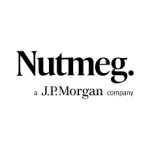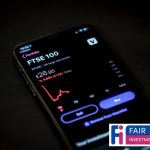Summer sizzlers: our hottest savings and investment ideas this summer
Last updated: 29/08/20176
Whilst our sprinters surged forward to a compelling and action packed final weekend at the World Championships, the Bank of England on the other hand refused to take action and raise interest rates this month by keeping the base rate at a record low of 0.25%. With no indication whether the Bank of England will raise interest rates any time soon, this is a useful reminder for both savers and investors to regularly review their options. So to help you stay on top of what the current market has to offer, we bring you a selection of some of our most popular savings and investment deals available this summer.
Interest Rates
The economic landscape has not changed much since the Bank of England maintained its record low position on interest rates. The base rate of interest remains at 0.25%, and with it the vast majority of savings rates have continued to sit well below inflation. And the future not only looks bleak for savers, but investors too as the higher yielding FTSE 100 companies begin to show signs of strain, with factors such as currency feeding concerns that these dividends look increasingly unsustainable and so are likely to fall.
So both savers and investors face the same dilemma: how can I make the most out of my capital this summer?
Under the Spotlight
Unfortunately, for many savers longer term financial products no longer provide the 5%+ returns of yester-year, and this significant drop in headline savings rates has made it much harder to commit to tying up money for longer periods of time. As a result of this, we have seen a lot of activity this summer in the shorter term savings space, particularly into instant access and current accounts.
In addition, savers have seen interest rates stagnate and their savings being increasingly eroded with the impact of higher inflation. This has led to some having to consider taking on more risk with some of their capital, in the hope of achieving the levels of returns they have enjoyed in previous years. So we also cover some of our income and growth investment best sellers.
Current Accounts
Up until a few years ago, current accounts were infamous for their low interest rates, with most paying nothing at all on any monthly balances. However, in the last few years banks have placed an emphasis on improving their products, with some banks offering very competitive rates in order to win new customers.
Whilst the majority of these accounts place a cap on the amount that they are willing to pay interest on, the rates themselves are attractive. Therefore, if you’ve not switched for a while, it may be beneficial to compare these to your existing current account and find out how much more you could earn from your everyday cash.
The Santander 1|2|3
The Santander 1|2|3 current account provides the opportunity to receive 1.50% AER variable on your entire balance up to £20,000, a rate that is higher than the market leading instant access account (see below). It also has the added bonus of providing up to 3% cashback on various household bills including gas, electricity, water, broadband and even your Santander mortgage. This account has a monthly fee of £5, and their website allows you to compare the annual cost with the amount of interest you could earn plus any cashback on your current monthly bills.
Instant Access
An instant access account may be an attractive option for those who might need access to their cash at very short notice. These are savings accounts that pay interest and allow you to withdraw money whenever you need it. Generally, you decide how much or little you put into the account.
Ulster Bank eSavings
For those who wish to enjoy the freedom of banking on the go, along with a market leading interest rate, Ulster Bank’s eSavings may be one of the best options. The account can be opened completely online and then managed online, via their banking app or over the telephone. Ulster Bank eSavings account offers 1.25% AER variable, with no tiered interest and no minimum deposit.
According to the Bank of England, the average instant access account is currently paying only 0.15%*. Based on a balance of £50,000, the eSavings account would pay £625 per year compared to just £75 from the average account, which is an additional £550 per year.
RCI Bank Freedom Savings Account
RCI Bank Freedom Savings Account offers 1.20% AER variable gross to both new and existing customers for any amount up to £1,000,000. Although the account requires an initial payment of at least £100 within the first 30 days of opening, the account is free to use and there are no fees, penalties or tiered interest rates. RCI Bank is part of the Renault global banking group and so the first €100,000 is protected by the French deposit guarantee scheme (FGDR) rather than the UK FSCS.
Short Term Fixed Rate Bonds
For many savers, the majority of longer fixed term rate bonds simply do not offer enough of an uplift in rate to justify having your money tied up for extended periods of time. For many savers therefore, it may be beneficial to consider shorter term fix rate bonds.
Access Bank UK offer short term fixed rate bonds that provide competitive rates. In order to access these rates you must make a minimum deposit of £5,000 and each account has a maximum deposit of £500,000. Although you can only make one deposit per account, Access Bank UK doesn’t put a cap on the amount of accounts you can open at once. All deposits are eligible for FSCS protection.
1 Year Access Bank: offers an interest rate of 1.70% AER fixed for 1 year
2 Year Access Bank: provides a fixed interest rate of 1.90% AER over 2 years
Medium and Longer Term Fixed Rate Bonds
For savers willing to part with their money for a longer period of time to receive higher returns, Vanquis Bank has a selection of products offering very competitive interest rates. There is a minimum deposit of £1,000 and a maximum deposit of £250,000. No withdrawals are allowed over the course of the fixed term and all deposits are eligible for FSCS protection.
3 Year Vanquis Bank: offers an interest rate of 2.20% AER fixed
4 Year Vanquis Bank: offers an interest rate of 2.35% AER fixed
5 Year Vanquis Bank: offers an interest rate of 2.50% AER fixed
Capital At Risk
Capital at risk products allow investors to access potentially higher interest rates at the expense of accepting their capital will be at risk.
Risk versus Reward
The balance of the potential upside of higher returns versus the potential downside of losing some or all of your capital is generally known as risk versus reward. A good benchmark for assessing your investment is to compare what you could get from a fixed rate deposit over a similar timeframe, and then consider whether you are prepared to accept the level of risk to your capital in return for either a higher fixed rate, or the potential for a higher variable income.
Fixed Income Investment
Investec FTSE 100 Enhanced Income Plan
If you need to know exactly how much you will get paid, when and for how long, Investec’s FTSE 100 Enhanced Income Plan may be an option to consider. This plan offers a fixed interest rate of 4.35% per year for the fixed term of 5 years, and offers monthly income payments. The plan offers some capital protection but if the FTSE falls by more than 40% then you may lose some or all of your capital.
Higher Yield, Variable Income Investments
For those looking for higher income opportunities, the Meteor and Investec plans below offer up to 8% interest per annum, but rather than a fixed income, how much you receive is dependent on the performance of the FTSE 100 Index. Each plan also has the ability to mature early (or ‘kick out’) in the event that the FTSE has gone up by 5% or more from the second year onwards – measured each year and each quarter respectively. If the plan does not mature early, your capital will be at risk if the FTSE has fallen by more than 40% at the end of the plan term. If it has, you will lose some or all of your initial capital invested.
Meteor FTSE Monthly Income Plan: this plan has a maximum term of 10 years and offers a potential monthly income of 0.67% (equivalent to 8.04% annually).
Investec FTSE 100 Defensive Income Plan: this plan has a maximum term of 8 years and offers a potential quarterly payment of 2.0% (equivalent to 8.0% per year).
Defensive Growth Investment
The Investec Defensive Step Down Kick Out Plan is our most popular defensive investment and has the potential to return 6.25% for each year invested, provided the FTSE finishes at the required level at the end of each year. The required level is 100% of its starting value at the end of year 2, and then reduces by 5% each year thereafter, down to 65% in the final year (i.e. if can fall up to 35% and you still receive your growth return).
If the FTSE is below the required level each year then no growth will be achieved and at the end of the plan your original capital will be returned. However, it is important to note that if at the end of the plan the FTSE 100 Index has fallen by more than 40% from its level at the start of the plan, your initial capital will be reduced by 1% for each 1% fall, so you could lose some or all of your initial investment.
Compare our summer’s most popular savings and investment ideas
Compare our current accounts »
Compare instant access accounts »
Compare fixed income investments »
Compare higher yield, variable income plans »
Compare defensive growth investments »
* Source: Bank of England: Bank of England average quoted household interest rates for instant access savings, 31st July 2017
AER stands for the Annual Equivalent Rate and illustrates what the interest rate would be if interest was paid and compounded once each year.
No news, feature article or comment should be seen as a personal recommendation to invest. Prior to making any decision to invest, you should ensure that you are familiar with the risks associated with a particular plan. If you are at all unsure of the suitability of a particular product, both in respect of its objectives and its risk profile, you should seek professional advice.
Tax treatment of ISAs depends on your individual circumstances and is based on current law which may be subject to change in the future. Always remember to check whether any charges apply before transferring an ISA.
The investments in this article are structured investment plans that are not capital protected and are not covered by the Financial Services Compensation Scheme (FSCS) for default alone. There is a risk of losing some or all of your initial investment due to the performance of the FTSE 100 Index. There is also a risk that the company backing the plan or any company associated with the plan may be unable to repay your initial investment and any returns stated. In addition, you may not get back the full amount of your initial investment if the plan is not held for the full term. The past performance of the FTSE 100 Index is not a guide to its future performance.
Tags





